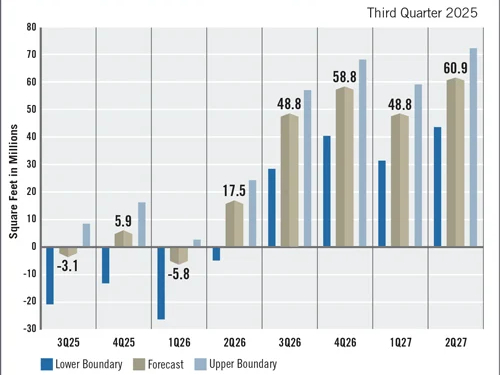August Issue: Law & Policy—Let the Seller Beware
In his quarterly column, DLA Piper real estate partner Michael Hamilton asks: Do you know what disclosure obligations you have when you’re selling a property?
By Michael Hamilton, Contributing Columnist
What disclosure obligations does a seller in an “as-is” commercial property sale have? Conventional notions suggest none. But a recent New York case explored the issue and came to an unexpected answer.
In TIAA Global Investments L.L.C. v. One Astoria Square L.L.C., the state appellate court ruled in March 2015 that the seller of an apartment building in New York City had a duty to disclose certain facts about the building’s physical defects where those facts were not known to and not easily discovered by the buyer. The court found that the seller was obliged to provide those facts not only under its contract but also under common-law fraud doctrines.
A day before the scheduled closing, residents complained to the property manager about insulation and heating problems. When asked about the complaints, the seller told the buyer by email that “everything is as per code,” and provided a letter from an engineering firm stating that the conditions had been recently repaired. Given those assurances, the buyer moved forward with closing.
But after taking ownership, the buyer realized that the repairs had not been made and that fixing the problems would be expensive. More than a year after closing, the buyer sued for fraud, asking for $4 million in damages.
In seeking dismissal of the suit on summary judgment, the seller cited the contract’s “as-is” provisions, the buyer’s agreement to rely on its own due diligence, certain caps on the seller’s liability for breaches of representation and warranties ($750,000) and a limited survival period for post-closing buyer claims (nine months). The buyer had also agreed that if it knew about certain conditions at closing, it would not be able to sue over them later.
Notwithstanding the seller’s arguments, the appellate court held that there were sufficient grounds to assert that the seller had committed common-law fraud by not disclosing the deficiencies in the property’s condition. The court noted that while specific disclaimers, such as customary as-is provisions, would ordinarily bar a “fraud by omission” claim, this is not the case when there are facts that “are peculiarly within the knowledge of one party and not the other.” This is known as the “special facts/superior knowledge doctrine.”
This ruling is noteworthy because fraud is typically associated with intentional deceit. Sellers generally understand that if they knowingly and intentionally deceive the buyer, they may be found liable for fraud. However, anything less than such obvious deceit is customarily deemed a buyer risk, and sellers and their counsel strive to ensure that sales are “as-is, where-is” and that general principles of caveat emptor prevail. An implied duty of disclosure where the parties expressly agreed there would be none is inconsistent with those notions.
A court’s willingness to apply the special facts/superior knowledge doctrine is determined on a case-by-case basis. The court will look to whether any independent duty to disclose exists, such as fiduciary duties in a joint venture or some other special trust relationship between the parties. The materiality of the undisclosed issue is also relevant. Moreover, the court will examine the capability and contractual rights of the plaintiff to have uncovered the condition through an investigation. Finally, the court will weigh the inequity that will result if no duty to disclose is found.
In light of the recent New York case and the special facts/superior knowledge doctrine, sellers of real estate should consider the following:
■ Sellers who have knowledge of conditions that would reasonably be expected to influence a buyer’s decision should consider affirmative disclosure to the buyer, especially regarding conditions that are not readily ascertainable by the buyer.
■ Sellers should not assume that “fraud” requires intentional deceit. Fraud might arise by mere omission, even if unintentional.
■ Where inequities would otherwise arise, a court may exercise discretion and override customary provisions, such as caps on the seller’s monetary liability and/or time limits for the buyer to file claims after closing.
■ Buyers should be asked to waive rights to assert a duty to disclose based on the seller’s superior knowledge or special facts. The enforceability of such waivers is questionable; however, they will provide additional support if litigation arises, and could serve as a deterrent to later claims.
Michael Hamilton is a real estate and finance partner in the Los Angeles office of DLA Piper L.L.P. (U.S.). You can reach him at
michael.hamilton@dlapiper.com.








You must be logged in to post a comment.